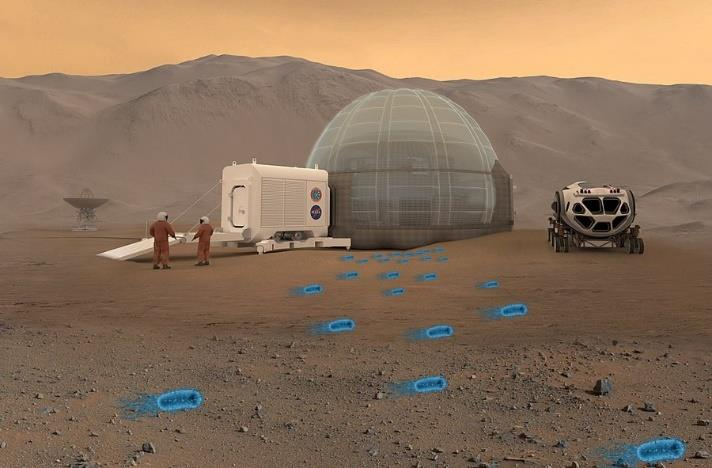Amadee-20-MICRO-POTENTIAL
Details
| Acronym | MICRO-POTENTIAL |
| Description | Investigating the development of astronauts microbiome during and after an isolation mission under Mars-analog conditions |
| Principal Investigator (PI) | Reut Sorek Abramovich E-mail: reut.sorek@gmail.com |
| Organisation | Dead Sea and Arava Science Center Desert Mars Analog Ramon Station |
| Co-Investigators | Yael Yair, Tel Aviv University Oded Aharonson, Weizmann Institute of Science, Department of Earth and Planetary
|
Summary

For missions to Mars, especially crewed ones, which aim to investigate
biomarkers must be aware of contamination issues and how they
might interfere with the investigation. It is impossible to remove live organisms and
organic material completely from an Earth based spacecraft prior to launch.
Some bacteria, in spore formation, have been shown to survive under thin layer of
Martian soil after spacecraft sterilization techniques. Analog missions are relevant
to test forward and backward contamination issues. Especially long-term analog missions, with
several crew members provide a reliable, sustainable source of information for bacterial
contamination analysis.
By using advanced sequencing techniques, the MICRO-POTENTIAL experiment aims to study
the effect of human missions on bacterial and eukaryotic dispersion in the vicinity of the habitat.
The scientific hypotheses to be tested are:
- Microbial population composition will correlate to the distance of samples from the habitat.
- Few species (<10) will be present in all samples regardless of distance.
- At a given geographical location, microbial population composition will vary with time